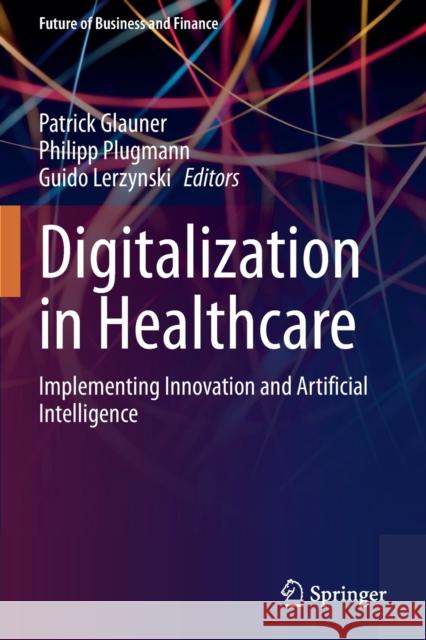Digitalization in Healthcare: Implementing Innovation and Artificial Intelligence » książka
topmenu
Digitalization in Healthcare: Implementing Innovation and Artificial Intelligence
ISBN-13: 9783030658984 / Angielski / Miękka / 2022 / 312 str.
Digitalization in Healthcare: Implementing Innovation and Artificial Intelligence
ISBN-13: 9783030658984 / Angielski / Miękka / 2022 / 312 str.
cena 241,50
(netto: 230,00 VAT: 5%)
Najniższa cena z 30 dni: 231,29
(netto: 230,00 VAT: 5%)
Najniższa cena z 30 dni: 231,29
Termin realizacji zamówienia:
ok. 16-18 dni roboczych.
ok. 16-18 dni roboczych.
Darmowa dostawa!
Digital technologies are currently dramatically changing healthcare. This book introduces the reader to the latest digital innovations in healthcare in fields such as artificial intelligence, points out new ways in patient care and describes the limits of its application. It also offers essential guidance in the form of structured and authoritative contributions by domain experts spanning from artificial intelligence to hospital management to radiology to dentistry to preventive medicine. Furthermore, it shares ideas and experiences of industry veterans, in particular on how IT-driven solutions could solve long-standing issues in the fields of healthcare and hospitalization. It also gives advice on what new digital technologies to consider for becoming a healthcare market leader in the future. Taken together, these contributions provide a “road map” to guide decision makers, physicians, academics, industry representatives and other interested readers to understand the large impact of digital technology on healthcare today and its enormous potential for future development.











